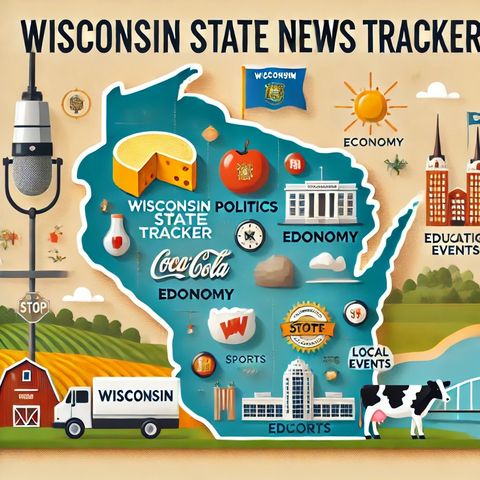Securing Wisconsin's Economic Future: Balancing Industrial Might, Agricultural Roots, and Retirement Readiness

Download and listen anywhere
Download your favorite episodes and enjoy them, wherever you are! Sign up or log in now to access offline listening.
Securing Wisconsin's Economic Future: Balancing Industrial Might, Agricultural Roots, and Retirement Readiness
This is an automatically generated transcript. Please note that complete accuracy is not guaranteed.
Description
Wisconsin's economy and culture have always been marked by a distinct mix of industrial activity and a robust agricultural heritage. The importance of having robust employment prospects, coupled with sound...
show moreWisconsin is known historically for dairy farming, which remains a cornerstone of its economy. However, it has also significantly diversified its economic base. Manufacturing, particularly in machinery, food processing, and vehicle production, is a major contributor to the state's income. Cities like Milwaukee and Madison have become centers for this diversified economic activity.
Another critical aspect of Wisconsin's economic resilience has been its educational sector, led by notable institutions such as the University of Wisconsin-Madison. These institutions are not only leading research centers but play a vital role in sustaining local economies through job creation and investment in innovation and technology.
Despite the robust economic framework, one issue that continues to pose a challenge is the availability and access to retirement savings plans for all workers. A significant number of Americans, including many in Wisconsin, lack access to employer-provided retirement savings instruments. This gap has been exacerbated by the changing nature of employment, with more people engaging in gig work or short-term contracts, which often do not offer traditional benefits like retirement plans.
Government and private sector initiatives in Wisconsin have aimed to address these gaps. For example, there are pushes towards offering state-facilitated retirement savings programs that can help workers who don’t have access to employer-sponsored plans. Additionally, there are discussions about policies that could incentivize small businesses to offer such benefits to their employees.
Addressing these economic and social issues shows Wisconsin’s proactive stance towards ensuring not only the present economic success but also long-term sustainability and security for its workforce, guarding against economic vulnerabilities that can arise from inadequate retirement planning. This multi-faceted approach is vital for maintaining the state's legacy of economic resilience and quality of life.
Information
| Author | QP-4 |
| Organization | William Corbin |
| Website | - |
| Tags |
Copyright 2024 - Spreaker Inc. an iHeartMedia Company
